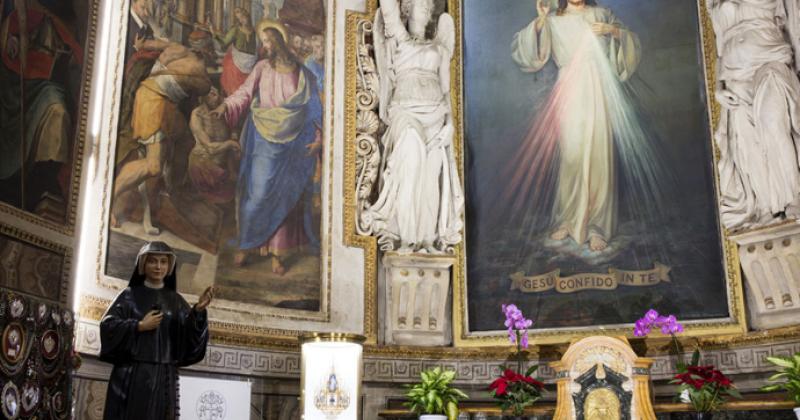During the public ministry of Jesus Christ, he preached a compelling and challenging message of mercy. He called on his disciples to forgive, not only their friends, but also their enemies. He raised the bar for forgiveness and exhorted his followers to forgive, not only seven times, but seventy-seven times.
It was a provocative summons then, it remains a provocative summons now.
The call to mercy, moreover, was placed within a broader appeal to carry a cross, go the extra mile, return cruelty with kindness, minister to the sick, serve the poor, honor marriage, and to approach all men and women – not with judgment or condescension – but with fraternal love and affection.
Even in the Lord’s own day, such demands for discipleship seemed outrageous and unrealistic. Many of his teachings were initially tolerated because of his many miracles, signs, and healings. In due course, however, things reached a breaking point.
The Lord’s teachings and his claims about himself, the living God, and the anticipated kingdom became too much, and so he was unjustly condemned, turned over to the Gentiles, tortured, humiliated, and crucified. The story is over and life goes on … at least, that’s what some thought.
On the third day, the Lord Jesus rose from the dead and this singular splendorous, magnificent, and awe-inspiring event of the Lord’s Resurrection changed everything. The world was made new and was offered grace and glory as the Risen Christ – showing his eternal power to humanity – vanquished forever the ancient foes of sin and death.
The Resurrection is the conquest of mercy. It is the triumph of goodness. It is the definitive emancipation of the human family. In the Risen Christ, we are now able to worship God without fear, being holy and righteous in his sight, as the Canticle of Zechariah sings.
With such an eternal victory at hand, therefore, what was the Lord Jesus speaking about before his Passion and Death? Why the call to die to oneself in giving mercy and service to others? Doesn’t the Resurrection make all things new?
The Lord’s Resurrection gives a renewed grace to humanity, but it is not a cheap grace. Grace is God’s life and power within us. It is the healing of our fallenness and the redemption of our original goodness as the children of God. Grace restores what sin has stolen. It is the means of our salvation. Grace purifies, consoles, convicts, raises us up, pushes us forward, and calls us to show forth the presence and the kingdom of God in our world.
And so, in the Risen Christ, we are given a promise of glory and the help of grace. We are not dispensed from the darkness, sinfulness, and hurt of our fallen world. We receive grace where we are, and we are called to unleash it, and let it work within us and through us.
Grace wails and groans within us to labor for the sake of righteousness. The Spirit of God grieves when grace is not permitted to bring forth the kingdom of truth and goodness.
And this is the rub. God’s grace desires to pierce our world, which was made good, but is now fallen. There is no battle between supposedly equal forces of good and evil. Such false drama is not reality. The true battle is between a good world and an illness – a spiritual cancer – called evil.
Evil is not equivalent to goodness. It is a “nothing,” and anti-reality, that eats away all that is good and existentially healthy. It fragments what is meant to be whole, it weakens what is meant to be strong, and it disfigures what is meant to be beautiful.
The battle, therefore, is to strengthen goodness and let it shine. There is no greater opposition to evil than robust goodness. And it is here, in this understanding, that the demands of the Lord Jesus to his disciples are properly placed. It is here in the battle, not between two equal forces, but between a good world that yearns to be reborn, freed from its fallenness, and strengthened by grace to flourish once again, that Christian disciples can most powerfully heed the Lord’s call, play their role, and allow the graces of the Resurrection to be victorious in the here and now.
This is the purpose of the Lord’s teachings. This is the way of the Christian. As the Easter Octave ends, and the Church throughout the world celebrates the Divine Mercy of God, every Christian is harkened back to the simplicity and challenge of the Lord’s invitation to be a force of grace and goodness, to be a true son or daughter of the Resurrection, and allow its glorious and saving light to cover the whole world.
